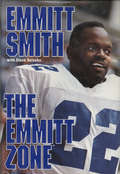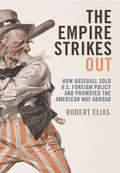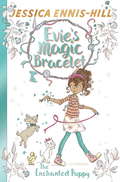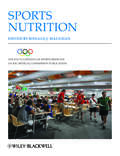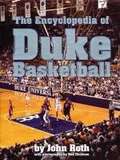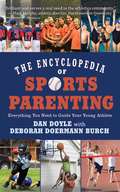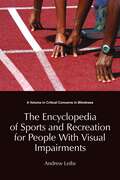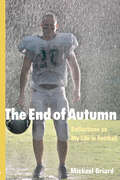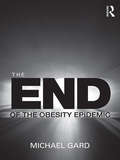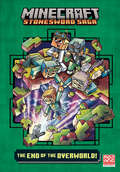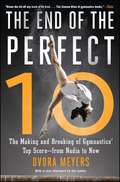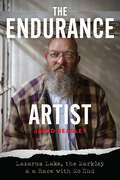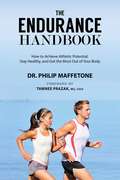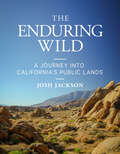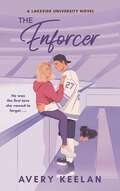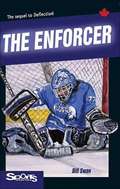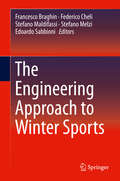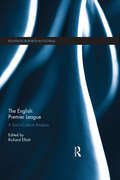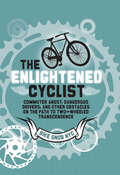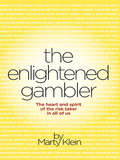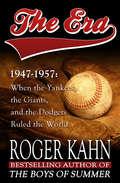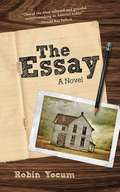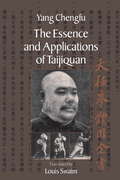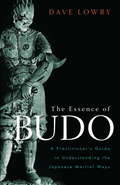- Table View
- List View
The Emmitt Zone
by Emmitt SmithOne of the top running backs ever to burst across the NFL turf describes his remarkable climb to the top, from his rise as one of the nation's elite high school players to his All-American days at Florida to the National Football League's and the Super Bowl's Most Valuable Player. 8 pages of photos.
The Empire Strikes Out
by Robert EliasIs the face of American baseball throughout the world that of goodwill ambassador or ugly American? Has baseball crafted its own image or instead been at the mercy of broader forces shaping our society and the globe? The Empire Strikes Out gives us the sweeping story of how baseball and America are intertwined in the export of "the American way."From the Civil War to George W. Bush and the Iraq War, we see baseball's role in developing the American empire, first at home and then beyond our shores. And from Albert Spalding and baseball's first World Tour to Bud Selig and the World Baseball Classic, we witness the globalization of America's national pastime and baseball's role in spreading the American dream. Besides describing baseball's frequent and often surprising connections to America's presence around the world, Elias assesses the effects of this relationship both on our foreign policies and on the sport itself and asks whether baseball can play a positive role or rather only reinforce America's dominance around the globe. Like Franklin Foer in How Soccer Explains the World, Elias is driven by compelling stories, unusual events, and unique individuals. His seamless integration of original research and compelling analysis makes this a baseball book that's about more than just sports.
The Enchanted Puppy: Book 2 (Evie's Magic Bracelet #2)
by Elen Caldecott Jessica Ennis-HillThe second in a magical, exciting series by Olympian and World Book Day ambassador Jessica Ennis-Hill. Perfect for fans of Rainbow Magic and My Little Pony! What if you had a magic bracelet that allowed you to bring toys to life? Evie's grandma has sent her another parcel. Inside layers of tissue and colourful ribbons is a beautiful bracelet! This time, the bracelet lets her bring things to life. But when a stuffed toy becomes a cute little puppy with a mind of his own, Evie and her friends are off on a magical adventure! Evie shares Jessica's determination and drive - an inspiration for kids everywhere.The full list of titles: 1. The Silver Unicorn2. The Enchanted Puppy3. The Sprites' Den4. The Unicorn's Foal5. The Clocktower Charm6. The Fire Bird7. The Golden Sands
The Encyclopaedia of Sports Medicine: An IOC Medical Commission Publication, Sports Nutrition
by Ronald J. MaughanIt is well understood that proper nutrition has a significant impact on sports performance. All of the essential nutrients must be supplied in the right amounts and at the right times for an athlete to achieve optimal health and performance. In addition, when devising eating strategies that will help athletes meet their goals, sports nutritionists must take account of personal preferences, social and cultural issues, and a whole range of other factors. This latest volume in the Encyclopaedia of Sports Medicine series, published by Wiley in partnership with the Medical Commission of the International Olympic Committee, Sports Nutrition covers this dynamic field in unparalleled depth and breadth, from the scientific underpinnings of nutritional science to the development of practical nutritional programs for athletes in a range of sports. Written and edited by the world's leading authorities on nutrition in sports, this timely new reference: Provides comprehensive coverage of nutrition for both individual and team sports Presents current knowledge of macronutrients, micronutrients, and dietary supplements for the athlete, outlining both benefits and risks Offers clear guidance on the unique nutritional needs of special populations of athletes, such as vegetarian athletes, young athletes and aging athletes Includes chapters on the clinical nutritional needs of diabetic athletes and athletes with weight management issues Carries the full endorsement of the IOC Medical Commission
The Encyclopedia of Duke Basketball
by John RothDuke basketball is one of the most celebrated programs in intercollegiate athletics. With fourteen Final Four appearances and three national championships for the men's teams and four Final Four appearances and five ACC championships for the women's teams, the Blue Devils have established a worldwide reputation for excellence and have inspired the fierce devotion of generations of fans.The Encyclopedia of Duke Basketball is the ultimate reference source for true-blue fans, with profiles of great games, classic finishes (both wins and losses), and compelling personalities, including players, coaches, and opponents. While it is filled with a wealth of statistical information, the Encyclopedia goes well beyond the numerical record to deliver insights on people and performances and anecdotes that will surprise even the most seasoned Duke supporter.The Encyclopedia features:-- A timeline of key events in men's and women's basketball history.-- Capsules of the most important men's and women's games in the program's history, including the men's buzzer-beating overtime win against Kentucky in 1992 and the women's stunning victory over Tennessee to reach the Final Four in 1999.-- An alphabetical encyclopedia with entries on players from Alaa Abdelnaby to Bill Zimmer and on coaches, customs, opponents, venues, and records.-- Exclusive interviews in which standout players, including Danny Ferry, Mike Gminski, Grant Hill, Christian Laettner, and Jason Williams, recount moments they'll never forget.-- A statistical record book covering every season through 2005-06.--130 photographs of Duke basketball history.A source of entertainment as well as information, this volume will be a great resource for fans hoping to settle arguments, relive favorite games, or simply enjoy hours of pleasurable reading.
The Encyclopedia of Falconry
by Adrian WalkerThis lavishly illustrated encyclopedia contains some 1,500 terms and idioms, related to or connected with falconry, with explanations, derivations and notes. It is illustrated with photographs, figures, and reproductions of antiquarian prints and is believed to be the first attempt to catalog and review the complete language of falconry as used between the later Middle Ages and the present day.The Encyclopedia of Falconry will be a valuable addition to all reference collections by uniquely covering a subject with a long and distinguished history.
The Encyclopedia of Sports Parenting: Everything You Need to Guide Your Young Athlete
by Dan Doyle Deborah Doermann BurchFor more than a decade, former basketball coach Dan Doyle has been traveling the country, speaking to student-athletes and their parents about their involvement in and dedication to every sport imaginable. As founder and executive director of the Institute of International Sport at the University of Rhode Island, Doyle has attended his fair share of sporting events and has heard countless stories about confrontations taking place on and off the court between coaches, players, parents, and even fans.As the years passed, Doyle gathered everything he'd learned and heard and joined forces with Deborah Doermann Burch, a former schoolteacher and parenting expert, to write The Encyclopedia of Sports Parenting. Together, they surveyed more than 500 successful sports figures to gain additional insight into what parents can do to guide their children through the competitive, sometimes disheartening--though oftentimes rewarding--world of sports.In this book, parents will learn how to express themselves in various challenging situations, including learning that their children have been cut from teams; have become victims of team violence, hazing, or bullying; or are not receiving adequate and assumedly deserved playing time.
The Encyclopedia of Sports and Recreation for People With Visual Impairments
by Andrew LeibsNot long ago, most blind and visually impaired people grew up without ever playing sports; they sat on the sidelines, and kept score during gym-protected rather than included. In the 1980s, few people had ever heard of the Paralympic Games or accessible recreation. <P> Today, promising blind athletes can receive residency at the US Olympic Training Center; runners compete for prize money and national championships, and most ski resorts offer adaptive programs throughout the year where blind people can ski, cycle, and kayak-often for free. The Paralympic movement, the Americans with Disabilities Act of 1990, and ever-increasing expectation for inclusion among the disabled have inspired an explosion of accessible sports, fitness, and recreation programs that accommodate the blind. <P> The Encyclopedia of Sports & Recreation for People with Visual Impairments is the first consumer- focused, action-oriented guide to this new world of accessible activity, profiling the people, programs, and products that are helping move blind and visually impaired people from the sidelines into the game. This groundbreaking guide profiles every accessible blind sport and recreation activity with entries that outline how athletes (both novice and elite) got involved in the sport and how participation has shaped their life. The book also profiles major blind sports organizations and includes chapter and resource listings on camps and accessible recreation providers. Through this book, blind people will be inspired to embrace sports as the rest of society does-as a vital component of personal expression and human interaction that opens paths to adventure,
The End of Autumn: Reflections on My Life in Football
by Michael OriardMuch of Michael Oriard's education took place outside the schoolroom of his native Spokane, Washington, during "slaughter practices" on high school football fields. He was taught to "punish" and "dominate," to rouse his school spirit with religion, and to "tough it" through injuries, even serious ones. At the age of eighteen he entered Notre Dame and walked onto the football team, where studying hard was never harder. By his senior year, playing for Ara Parseghian's Fighting Irish, he was the starting center and co-captain of the team. After graduating, he signed with the Kansas City Chiefs and head coach Hank Stram. There he learned what it meant to be "owned." He rediscovered the game as it was played by grown men with families who were still treated like children and who dreaded nothing more than the end of their football careers. And without their fully realizing the consequences, every hard tackle inflicted its injury, some gradually growing into chronic conditions, some suddenly cutting a player's career short and ushering him off the field to be soon forgotten. In this thoughtful narrative, Oriard describes the dreams of glory, the game day anxieties, the brutal training camps and harsh practices, his starry-eyed experience at Notre Dame, and the cold-blooded business of professional football. Told from the inside, the book leaves aside the hype and the pathos of the game to present a direct and honest account of the personal rewards but also the costs players paid to make others rich and entertained. Originally published in 1982, The End of Autumn recounts the experiences of an ordinary player in a bygone era--before ESPN, before the Bowl Championship Series, before free agency and million-dollar salaries for NFL players. In a new afterword, Oriard reflects on the process of writing the book and how the game has changed in the thirty years since his "retirement" from football at the age of twenty-six.
The End of the Obesity Epidemic
by Michael GardDespite apocalyptic predictions from a vocal alliance of health professionals, politicians and social commentators that rising obesity levels would lead to a global health crisis, the crisis has not materialised. In this provocative follow up to his classic work of obesity scepticism, The Obesity Epidemic, Michael Gard argues that we have entered into a new, and perhaps terminal, phase of the obesity debate. Evidence suggests that obesity rates are levelling off in Western societies, life expectancies continue to rise in line with rising obesity rates, and across the world policy-makers have remained largely indifferent and inactive in the face of this apparently deadly threat to our health and well-being. Dissecting and dismissing much of the over-blown rhetoric and ideological bias found on both sides of the obesity debate, Gard demonstrates that the science of obesity remains radically uncertain and that it is impossible to establish an objective ‘truth’ on which to base policy. His powerful and inescapable conclusion is that we should now mark the end of the obesity epidemic. Offering a road map through the maze of claims and counter-claims, while still holding to a sceptical standpoint, this book provides an unparalleled anatomy of obesity as a scientific, political and cultural issue. It is essential reading for anybody with an interest in the science or sociology of health and lifestyle.
The End of the Overworld! (Minecraft Stonesword Saga)
by Nick EliopulosThe Stonesword Saga comes to an epic conclusion in this deluxe illustrated hardcover chapter book—the only official Minecraft chapter book series!Based on one of the most popular video game of all time, this all-new chapter book series takes a group of intrepid Minecraft players deeper into the game than ever before. In their last adventure, Morgan, Harper, and their friends barely survived a dangerous game only to return to a Minecraft Overworld in total chaos! The rift that's been growing steadily larger in the sky is now on the verge of consuming everything in its path. The team has one chance to save Minecraft and their friend the Evoker King—but it may already be too late. Find out what happens in Book #6, the epic conclusion of the Stonesword Saga!!!Look for these other great Minecraft® titles:• Into the Game! (Minecraft Woodsword Chronicles #1) • Last Block Standing! (Minecraft Woodsword Chronicles #6) • Crack in the Code! (Minecraft Stonesword Saga #1)© 2023 Mojang AB. All Rights Reserved. Minecraft, the Minecraft logo, the Mojang Studios logo and the Creeper logo are trademarks of the Microsoft group of companies.
The End of the Perfect 10: The Making and Breaking of Gymnastics' Top Score —from Nadia to Now
by Dvora MeyersA “delightful and insightful” (The Wall Street Journal) account of the controversial world of gymnastics and its scoring system, which has propelled powerful and athletic American gymnasts to the top of the sport.It was the team finals of women’s gymnastics in the 2012 London Olympics and McKayla Maroney was on top of her game. The sixteen-year-old US gymnast was performing arguably the best vault of all time, launching herself unimaginably high into the air and sticking a flawless landing. But when her score came, many were baffled: 16.233. Three tenths of a point in deductions stood between her and a perfect score. But if that vault wasn’t perfection, what was? For years, gymnastics was scored on a 10.0 scale. During this era, more than 100 “perfect” scores were awarded in major international competitions. But when the 10.0 scoring system caused major judging controversies at the 2004 Olympics, international elite gymnastics made the switch to the open-ended scoring system it uses today, which values both difficulty and technical execution, making perfect scores a thing of the past—and forever altering the sport in the process. With insight, flair, and boundless love for the sport, gymnastics insider Dvora Meyers answers questions that fans have been asking since the last perfect score was handed out over twenty years ago. She reveals why successful female gymnasts like 2016 Olympics All Around medalists Simone Biles and Aly Raisman are older and more athletic than they have ever been before, how the United States became the gymnastics powerhouse it is today, and what the future of gymnastics may hold. Bolstered by dozens of exclusive interviews with professionals representing every aspect of the sport, The End of the Perfect 10 is “the Simone Biles of gymnastics books” (Slate), a captivating look at elite gymnastics’ entry into the uncharted world of imperfection—and how it has created stronger athletes than ever before.
The Endurance Artist: Lazarus Lake, the Barkley & a Race with No End
by Jared BeasleyA rare look into an enigmatic accountant from Tennessee&’s backwoods who morphs into Lazarus Lake, the world&’s most notorious race maker.The Endurance Artist is an all-access pass to the world&’s most extreme races and the mastermind behind them, where we witness firsthand the gears, the machinations, the egos, the surprising humanity. The most grueling and ingenious races in the world are the creation of Gary Cantrell, better known by the nom de guerre Lazarus Lake. He has been described as a &“hillbilly genius&” and the &“Leonardo di Vinci of pain.&” His Barkley Marathons is known as the most difficult ultramarathon ever devised, a fight club in the wilderness run in secret. With books hidden in the woods, condolence letters, a cigarette-start, and elevation gain that amounts to summiting Mount Everest twice, it defies convention. Big&’s Backyard Ultra pushes human beings to their absolute limit on a four-mile loop that is run every hour, starting on the hour until there is just one runner standing—most recently, a high school teacher who ran 450 miles without sleep. Author Jared Beasley ferrets his way into the world of a recluse hell-bent on rewriting the rules to reveal a life reimagined and failure reinvented. Laz calls into question our obsession with winning and fairness, success and failure, and whether these ideas handicap potential.
The Endurance Handbook: How to Achieve Athletic Potential, Stay Healthy, and Get the Most Out of Your Body
by Dr Philip MaffetoneAre you a triathlete, runner, cyclist, swimmer, cross-country skier, or other athlete seeking greater endurance? The Endurance Handbook teaches athletes how to stay healthy, achieve optimal athletic potential, and be injury-free for many productive years. Dr. Philip Maffetone’s approach to endurance offers a truly "individualized” outlook and unique system that he has refined over three decades of training and treating athletes, ranging from world champions to weekend warriors. Maffetone’s training and racing philosophy emphasizes building a strong aerobic base for increased fat burning, weight loss, sustained energy, and a healthy immune system. Good nutrition and stress reduction are also key to this common-sense, big-picture approach. Dr. Maffetone also dispels many of the commonly held myths that linger in participatory sports--and which adversely impact performance--and explains the "truths” about endurance, such as: The need to train slower to race faster will enable your aerobic system to improve endurance Why expensive running shoes can actually cause foot and leg injuries The fact that refined carbohydrates actually reduce endurance energy and disrupt hormone balance How overtraining can be avoided in its earliest stages And much more! If you are looking to increase your endurance and maximize your athletic potential, The Endurance Handbook is your one-stop guide to training and racing effectively.
The Enduring Wild: A Journey into California's Public Lands
by Josh JacksonA galvanizing road trip across California's immense public wilderness from a beloved adventurer."The Enduring Wild is a call to look beyond the surface, embrace the deep connections that tie us to our public lands, and commit to safeguarding them for future generations." —QT Luong, author of Treasured Lands: A Photographic Odyssey Through America's National ParksIt all began with a camping trip. Outdoor enthusiast Josh Jackson had never heard of "BLM land" before a casual recommendation from a friend led him to a free campsite in the desert—and the revelation that over 15 million acres of land in California are owned collectively by the people. In The Enduring Wild, he takes us on a road trip spanning thousands of miles, crisscrossing the Golden State to seek out every parcel of public wilderness therein belonging to the federal Bureau of Land Management, from the Pacific shores of the King Range down to the Mojave Desert. Over mountains, across prairies, and through sagebrush, Jackson unravels the stories of these lands. He tells of the Indigenous peoples who have called them home for millennia, of the extractivist threats that imperil them today, and of the grassroots organizers and political champions who have rallied to their common defense to uphold the radical mandate to protect these natural treasures for generations to come. For the adventurers, campers, explorers, map readers, road trippers, nature enthusiasts, and public lands lovers out there, The Enduring Wild is an indispensable invitation to know these places more deeply and to embrace our common inheritance. Illustrations by Rebekah Nolan.
The Enforcer
by Avery KeelanI spent two years convincing myself what we had wasn’t real—and the moment our eyes lock from across the room, all those lies I’ve been telling myself shatter at my feet.Hockey superstar Nash Richards was my first everything: my first boyfriend, my first time, and my first love. I used to attend every Lakeside U hockey game, proudly wearing his jersey while I cheered him on from the stands. Then he cross-checked my heart into the boards, and I vowed never to set foot in that arena again.Now, life just slap-shot me in the face: a senior internship with Nash’s team, and guess who I’m assigned to? I have to work one-on-one with Nash for an entire semester. Talk about a worst-case scenario.I know better than to fall for his charms a second time, especially with the department’s no-dating rule between trainers and their athletes. But that’s easier said than done when our old spark is now a raging inferno and he’s hell-bent on winning me back.As Nash gradually breaks down my walls, he reveals a side of himself that's raw and more vulnerable than I've ever seen. Lines blur during late nights in the training room alone, a moment of weakness turning everything upside down. But beneath this newfound closeness, he’s keeping a dark secret that could tear us apart—and in this high-stakes game of love, we’re both risking more than just our hearts.The Lakeside University series by TikTok sensation Avery Keelan kicks off with The Enforcer, a spicy and unputdownable hockey romance!At the Publisher's request, this title is being sold without Digital Rights Management Software (DRM) applied.
The Enforcer
by Bill SwanCan Jack's hockey team adapt to his Grandpa P.J.'s old-school methods when he becomes their coach?
The Engineering Approach to Winter Sports
by Francesco Braghin Federico Cheli Stefano Maldifassi Stefano Melzi Edoardo SabbioniThe Engineering Approach to Winter Sports presents the state-of-the-art research in the field of winter sports in a harmonized and comprehensive way for a diverse audience of engineers, equipment and facilities designers, and materials scientists. The book examines the physics and chemistry of snow and ice with particular focus on the interaction (friction) between sports equipment and snow/ice, how it is influenced by environmental factors, such as temperature and pressure, as well as by contaminants and how it can be modified through the use of ski waxes or the microtextures of blades or ski soles. The authors also cover, in turn, the different disciplines in winter sports: skiing (both alpine and cross country), skating and jumping, bob sledding and skeleton, hockey and curling, with attention given to both equipment design and on the simulation of gesture and track optimization.
The English Premier League: A Socio-Cultural Analysis (Routledge Research in Football)
by Richard ElliottThe English Premier League (EPL) is one of the world’s most valuable and high-profile sports leagues, with millions of fans around the globe. The 2016/17 season marked the 25th anniversary of the EPL, providing a unique opportunity to reflect on how it has contributed, both positively and negatively, to key developments in football – and in sport and culture more broadly – at local, national and global levels. Drawing on central themes in the social scientific study of sport, such as globalisation, celebrity, fandom, commercialisation, gender, sexuality and race, this book is the first to assess the historical development and current significance of the EPL. With original contributions from several of the world’s leading football scholars, it provides in-depth case studies of the multifaceted role of the EPL in the contemporary world of sport, as well as offering thought-provoking predications for the future challenges that it will face. The English Premier League: A Socio-Cultural Analysis is a fascinating read for any sport studies student or scholar with a particular interest in football and the sociology of sport.
The Enlightened Cyclist: Commuter Angst, Dangerous Drivers, and Other Obstacles on the Path to Two-Wheeled Trancendence
by Bike Snob NYCThe author of Bike Snob helps bike commuters transcend common obstacles and handle cars, pedestrians, and other cyclists with grace.The joys of commuting by bike attract scores of new converts every year. But as fresh-faced cyclists fill the roads, they also encounter their share of frustrations—careless drivers, wide-flung car doors, zoned-out pedestrians, and aggressive fellow cyclists, to name a few. In this follow-up to Bike Snob, BikeSnobNYC takes on the trials and triumphs of bike commuting with snark, humor, and enthusiasm. He asks the question: If we become better commuters, will that make us better people? From the deadly sins of biking to tactics for dealing with cars, pedestrians, and other cyclists, this primer on bike travel is a must-read for cyclists new and seasoned alike.
The Enlightened Gambler
by Marty KleinSo, you like gambling and you want to play? Well, if you want to play, you may have to pay! If you don't watch it you can get tossed around like a tumbleweed on a windy day. You might have to either lose your stubborn defiance or your shirt. So... which one you gonna choose? The Enlightened Gambler guides the reader through the author's world of gambling, seduced by the never ending excitement in the "land of uncertainty". . The book encourages readers to step past the superficial and take a more conscious view of the motivating drive in all of us to take risks. In a lighthearted, sometimes laugh-out-loud, self deprecating style, the author playfully and willingly exposes his own vulnerability to the seductive lure of gambling, but then points out ways to encourage winning attitudes, which he has developed over the years, while defusing old, toxic, loser mentality.
The Era, 1947–1957: When the Yankees, the Giants, and the Dodgers Ruled the World
by Roger KahnThe author of The Boys of Summer explores the golden age of baseball, an unforgettable time when the game thrived as America&’s unrivaled national sport.The Era begins in 1947, with Jackie Robinson changing major league baseball forever by taking the field for the Dodgers. Dazzling, momentous events characterize the decade that followed—Robinson&’s amazing accomplishments; the explosion on the national scene of such soon-to-be legends as Mickey Mantle, Willie Mays, Bobby Thomson, Duke Snider, and Yogi Berra; Casey Stengel&’s crafty managing; the emergence of televised games; and the stunning success of the Yankees as they play in nine out of eleven World Series. The Era concludes with the relocation of the Dodgers from Brooklyn to Los Angeles, a move that shook the sport to its very roots.&“Kahn knows where the bodies are buried and allows his audience a joyous read as he digs them up.&”—Publishers Weekly &“[Kahn] engagingly captures the flavor of the times by bringing to the fore the defining traits and relationships that added human dimension to the sport.&”—Library Journal&“Kahn weaves such personal information into his rich descriptions of thrilling regular-season, playoff and World Series games. And in doing so he endows the players, managers and owners with more dynamic dimensions than any baseball writer of his generation. The men in The Era are ballplayers, not deities; and it takes the unerring strength of a straight shooter like Kahn to remind nostalgic baseball fans of that simple fact.&”—Chicago Tribune
The Essay: A Novel
by Robin YocumJimmy Lee Hickam grew up along Red Dog Road, a dead-end strip of gravel and mud buried deep in the bowels of Appalachian Ohio. It is the poorest road, in the poorest county, in the poorest region of the state. To make things worse, the name Hickam is synonymous with trouble. Jimmy Lee hails from a heathen mix of thieves, moonshiners, drunkards, and general anti-socials that for decades have clung to both the hardscrabble hills and the iron bars of every jail cell in the region. This life, Jimmy Lee believes, is his destiny, someday working with his drunkard father at the sawmill, or sitting next to his arsonist brother in the penitentiary. There aren’t many options if your last name is Hickam. An inspiring coach and Jimmy Lee's ability to play football are the only things motivating him to return for his junior year of high school—until his visionary English teacher cuts him a break and preserves his eligibility for the coming football season. To thank her, Jimmy Lee writes a winning essay in the high school writing contest. When irate parents and the baffled administration claim he has cheated, his teacher is inspired to take his writing talent as far as it can go, showing him the path out of the hills of Appalachia. Terrific characterizations, surprising revelations, gut-wrenching past betrayals, and an unforgettable cast of characters born of the dusty, worn-out landscape of southeastern Ohio make The Essay a powerful, evocative, and incredibly moving novel.
The Essence and Applications of Taijiquan
by Louis Swaim Yang ChengfuThe publication in 1934 of Yang Chengfu's book, Essence and Applications of Taijiquan (Taijiquan Tiyong Quanshu) marked a milestone in the modern evolution of the art of taijiquan. Using what is best-termed demonstration narrative, the author presents form postures and suggested applications from his own perspective, as he performed them. This methodology renders Yang Chengfu's direct, hands-on teaching of the art with such immediacy and liveliness that the reader experiences the master's teaching much as his students did.This English translation finally makes Yang Chengfu's classic work available to taijiquan enthusiasts in the West. It includes notes and commentary that clarify the author's frequent classical and literary turns of phrase and elucidate the philosophical and political underpinnings that shape the text. The translator investigates and compares several early taijiquan books in order to help explain the roles played by two of Yang Chengfu's students, Dong Yingjie and Zheng Manqing, in bringing Yang Chengfu's words and teachings into print.Serious students of taijiquan, and those wishing to deepen their knowledge of taijiquan history and theory, will find this seminal work indispensable to their study and practice.
The Essence of Budo: A Practitioner's Guide to Understanding the Japanese Martial Ways
by Dave LowryThe study of budo, or the Japanese martial arts for self-cultivation, is a lifelong path toward perfection of character. Here, Dave Lowry, a sword master who has practiced and taught budo for over forty years, addresses the myriad issues, vagaries, and inconsistencies that arise for students of karate-do, judo, kendo, kenjutsu, aikido, and iaido as their training develops. He examines such questions as: * What is the relationship between the student and teacher, and what should one expect from the other? * What does rank really mean? * How do you correctly and sensitively practice with someone less experienced than you? * What does practice look like as one ages? * Why do budo arts put such an emphasis on etiquette? * And many others Lowry also gives practical advice for beginning and advanced students on improving structural integrity in posture and movement, focusing under stress, stances and preparatory actions before engaging with an opponent, and recognizing a good teacher from a bad one.
